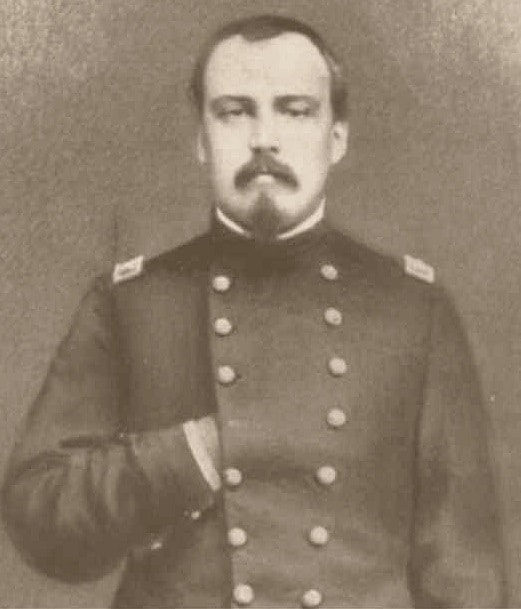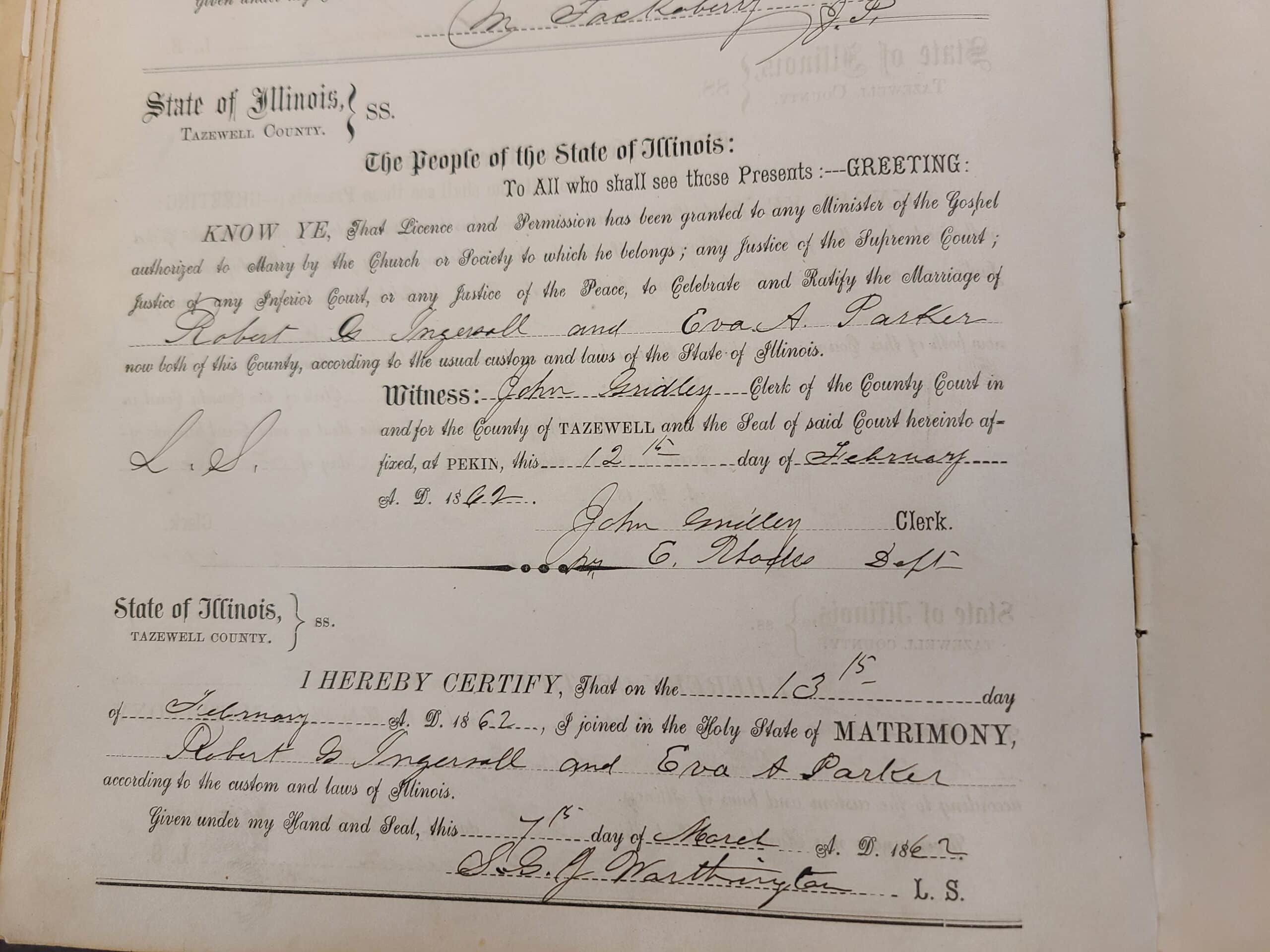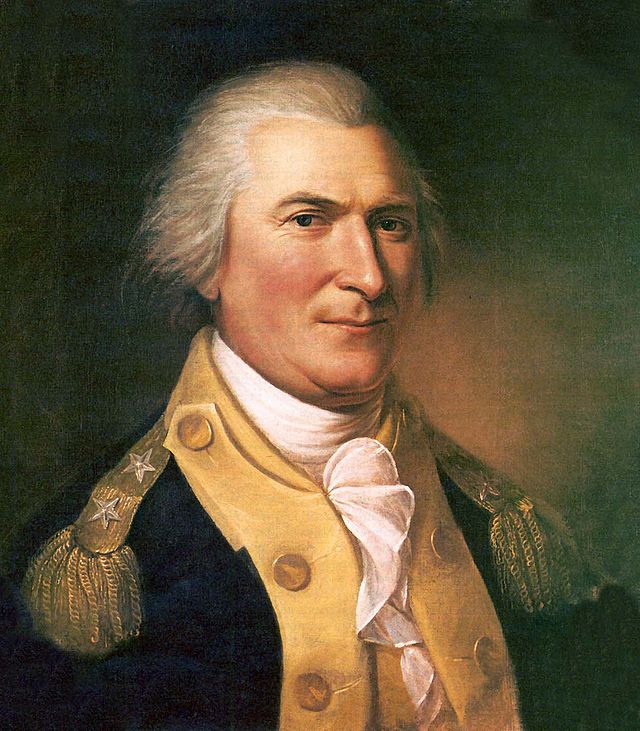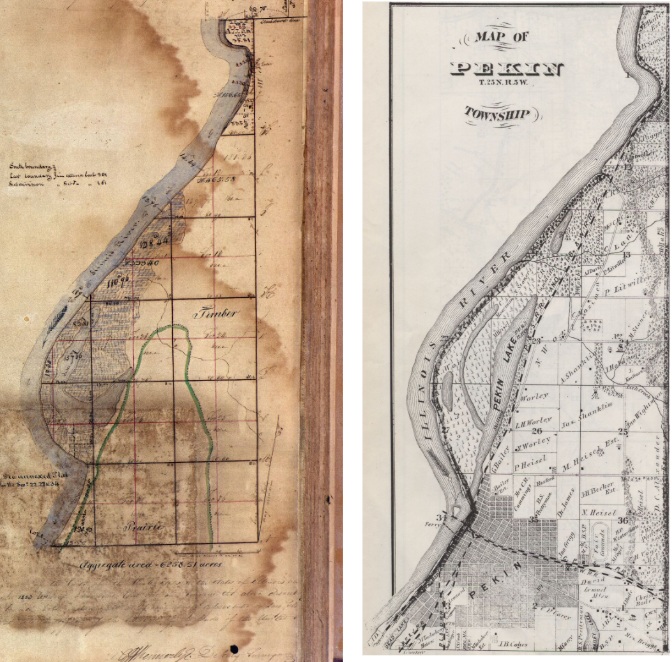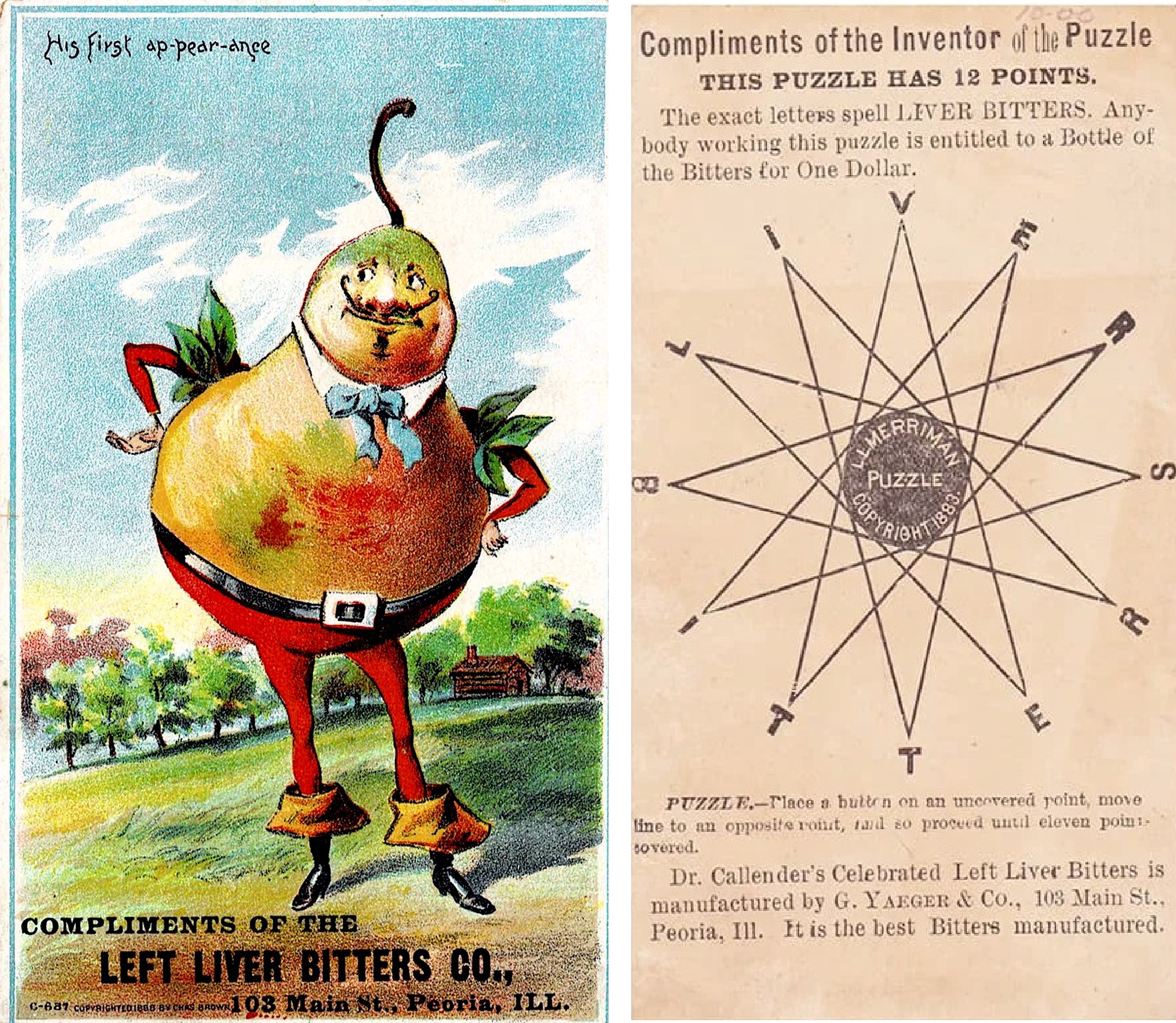Last Saturday morning, Aug. 12, the Tazewell County Courthouse hosted a celebration of the 190th birthday of Robert G. Ingersoll (1833-1899).
The special event, organized by Tazewell County Clerk and Recorder of Deeds John Ackerman, featured a keynote address from Dr. Victoria Loberg, author of “Robert Green Ingersoll: Forgotten By Peoria?”
It has been said that before the invention of radio, more Americans had heard Robert Ingersoll’s voice than any other individual. But Ingersoll was famous in his lifetime not only as a gifted orator and advocate of civil rights, but he was also a noted attorney in Central Illinois whose lawyerly duties and personal relationships brought him to Pekin numerous times over the years. While court was in session at the Tazewell County Courthouse in Pekin, Ingersoll frequently stayed at the old Tazewell House hotel at the corner of Court and Front streets.
After the old hotel was demolished in 1904, the hotel’s threshold was saved and was inscribed with the names of the prominent attorneys who had crossed it so many times in the past. The threshold is preserved and displayed in Courtroom 104 at the Tazewell County Courthouse, and its inscription reads: “Hereon trod the great Abraham Lincoln – Stephen A. Douglas – John A. Logan – Robert G. Ingersoll – David Davis – Edward D. Baker and others.” Ingersoll counted Lincoln among his personal friends, and the president’s assassination led him to join the Republican Party as one of its Radicals.
In addition, Ingersoll, who had settled in Peoria in 1857, married in Tazewell County in 1862. His wife was Eva Amelia Parker (1841-1923), daughter of early Groveland pioneer Benjamin Weld Parker, and their marriage took place at the Parker family home in Groveland. Ingersoll lived in Peoria for many years, but later moved back to New York, the state where he had been born.
Those who attended Saturday morning’s event at the courthouse were able to view Ingersoll’s 1862 marriage license as well as the Tazewell House threshold inscribed with his name.
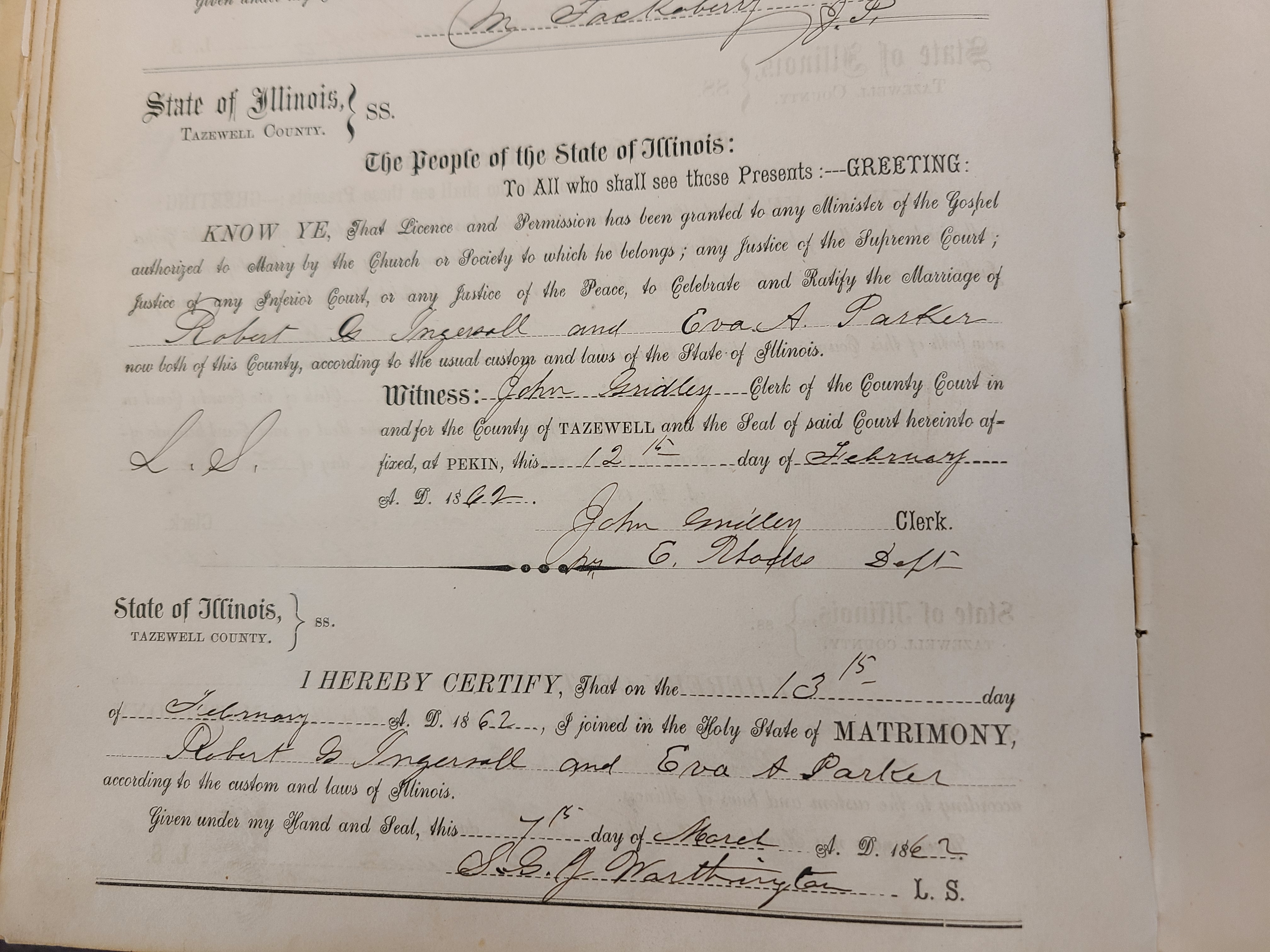
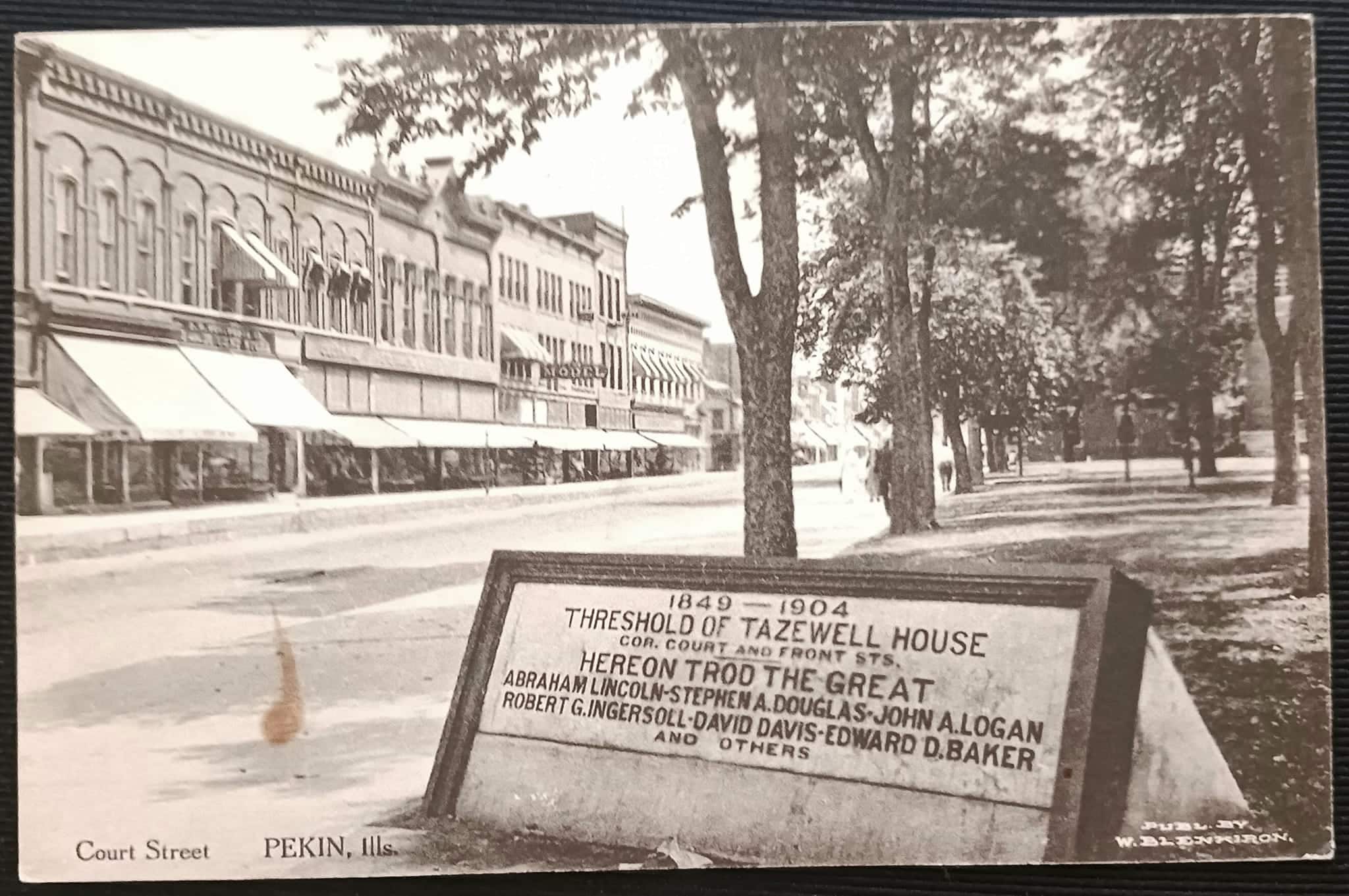
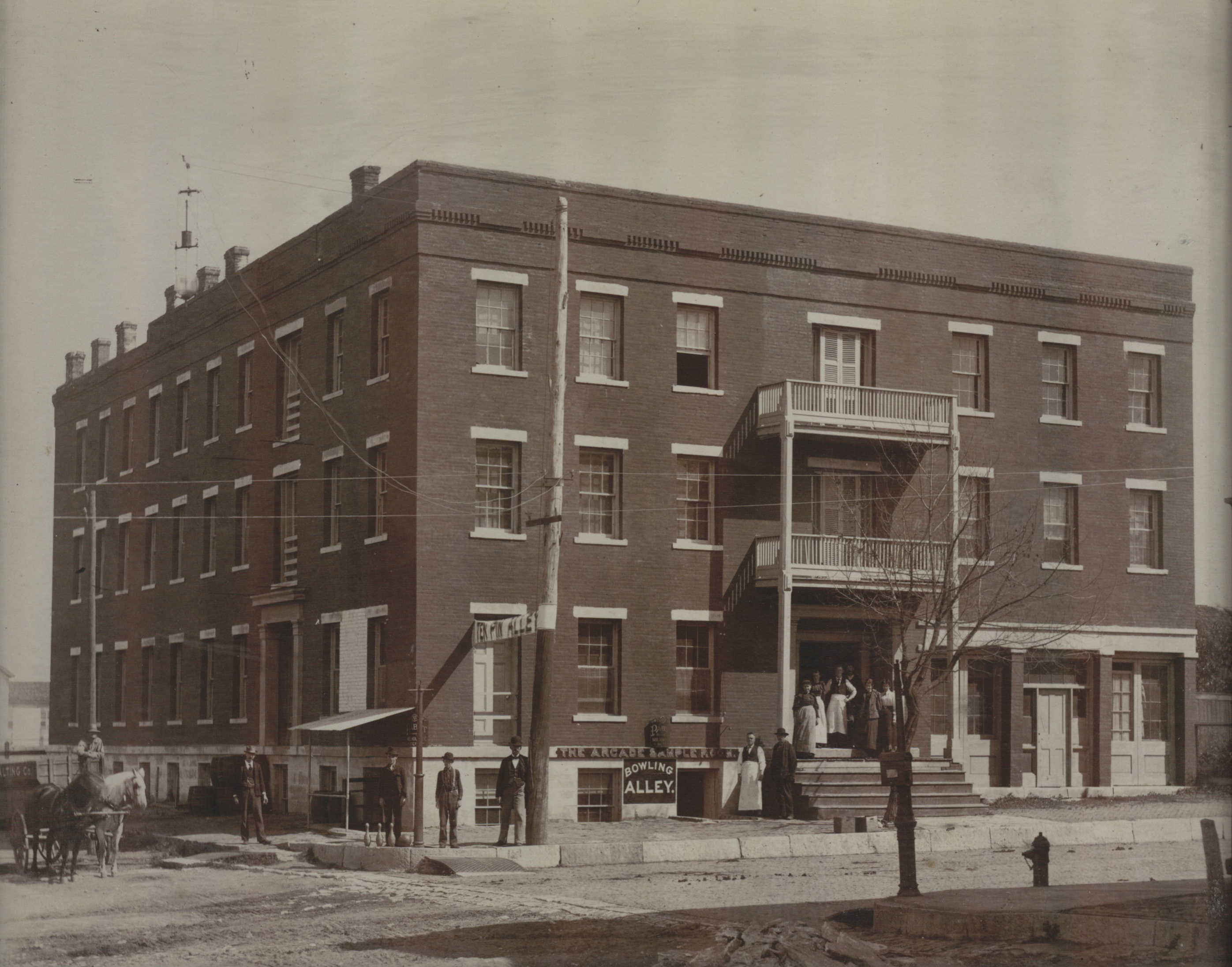
Ingersoll is best known as “the Great Agnostic,” a nationally known “freethinker” who used his rhetorical skills to argue forcefully against traditional Christian beliefs. In fact, he gave his first anti-theological speech, entitled Progress, at Pekin about a year before his marriage. Ingersoll himself was raised in a religious household, and was the son of a Congregationalist minister (albeit one who held radical or liberal theological views). In his younger days, he held Deist views but later his thinking shifted to rationalism, agnosticism, and atheism.
Though he rejected Christian beliefs, the Christian moral ethic in which he was raised still helped to inform his liberal social and political outlook, leading him to become a strong abolitionist and a staunch Radical Republican. He also promoted women’s suffrage and was a civil rights activist. Although his agnosticism was too great a political liability in those days for him to be able to seek elective office, he was appointed 16th Attorney General of Illinois in 1867 and served two years in that office (1867-1869). He also opposed the racist Chinese Exclusion Act.
Besides all that, when the nation tore apart over the issue of slavery in 1861, Ingersoll stepped forward to defend the Union, raising the 11th Illinois Volunteer Cavalry and serving as the regiment’s first Colonel. He led the regiment at Shiloh in early April 1862, but was later captured by the Confederate Army near Lexington, Tennessee, in December of 1862. The Confederacy released him on “parole” with a promise on his honor not to fight against the Confederacy, so he resigned his officer’s commission on 30 Jun 1863.
Ingersoll died of congestive heart failure at age 65 on 21 July 1899 in Dobbs Ferry, New York. His ashes are interred at Arlington National Cemetery.
